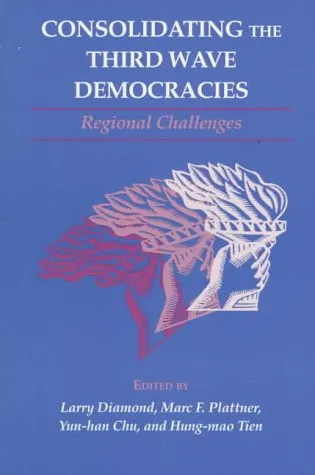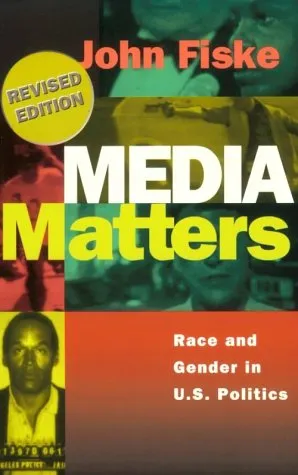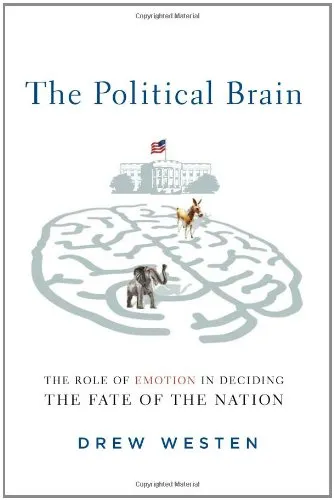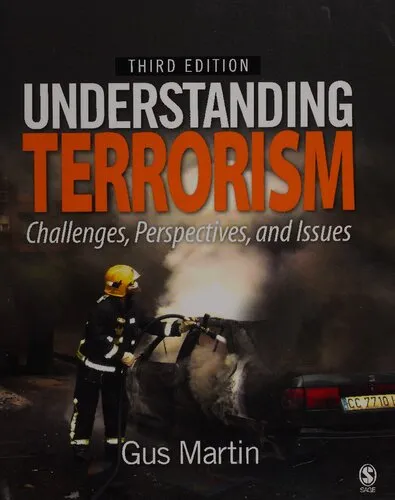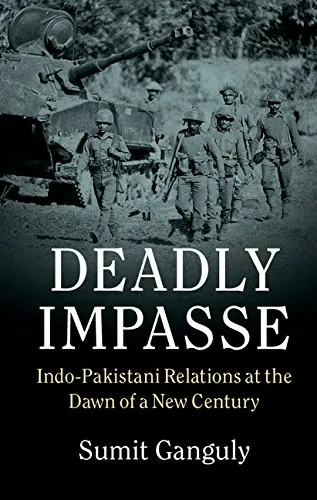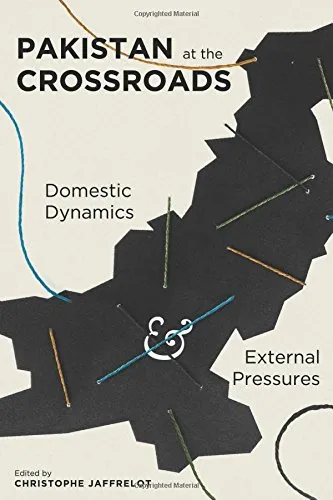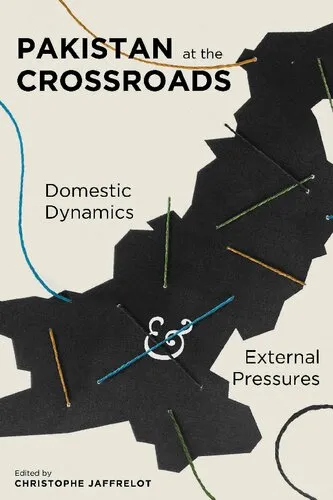Consolidating the Third Wave Democracies: Regional Challenges
4.0
بر اساس نظر کاربران

شما میتونید سوالاتتون در باره کتاب رو از هوش مصنوعیش بعد از ورود بپرسید
هر دانلود یا پرسش از هوش مصنوعی 2 امتیاز لازم دارد، برای بدست آوردن امتیاز رایگان، به صفحه ی راهنمای امتیازات سر بزنید و یک سری کار ارزشمند انجام بدینکتاب های مرتبط:
معرفی کتاب "Consolidating the Third Wave Democracies: Regional Challenges"
کتاب "Consolidating the Third Wave Democracies: Regional Challenges" یکی از آثار برجسته در زمینه مطالعات دموکراسی و سیاست تطبیقی است که به بررسی چالشها و فرصتهای پیش روی موج سوم دموکراسی در مناطق مختلف جهان میپردازد. این کتاب، که توسط چندین متخصص برجسته شامل لری دایمند، مارک اف. پلاتنر، یون-هان چو و هونگ-ماو تین نوشته شده است، تصویری جامع از دگرگونیهای سیاسی عمیق در دوران پساجنگ سرد ارائه میدهد.
خلاصهای جامع از کتاب
این کتاب بر اساس مجموعهای از مقالات تدوین شده که اکثراً در نشریه معتبر Journal of Democracy منتشر شدهاند. نگارندگان کتاب بر روی نحوه تقویت و پایداری دموکراسیها در میان کشورهایی که از موج سوم دموکراسی بهرهمند شدهاند متمرکز شدهاند و مسائل کلیدی از جمله ساختارهای نهادی، ویژگیهای فرهنگی، معضلات اقتصادی و مداخلات بینالمللی را بررسی میکنند. در این کتاب، تمرکز ویژهای بر مناطق مختلف، از جمله آسیا، اروپای شرقی، آفریقا و آمریکای لاتین وجود دارد. به طور خلاصه، کتاب تلاش میکند که با تحلیلهای گسترده، فرایند گذار به دموکراسی را تبیین و چالشهای پیشرو برای تثبیت آن را معرفی کند.
یافتههای کلیدی
- اهمیت حیاتی ایجاد نهادهای قوی و پایدار برای پایداری دموکراسیهای نوپا.
- نفش مثبت (و گاهی منفی) نهادهای بینالمللی مانند United Nations و World Bank در تقویت دموکراسیها.
- بزرگترین چالشها در مسیر دموکراسیسازی شامل فساد، ضعف اقتصادی، و نبود اجماع سیاسی است.
- نقش تاثیرگذار فرهنگ سیاسی و سنتهای محلی در شکلگیری یا تضعیف فرآیندهای دموکراتیک.
جملات معروف از کتاب
"بدون تقویت نهادهای دموکراتیک، گذار به دموکراسی چیزی بیشتر از یک تغییر سطحی نخواهد بود."
"دموکراسی فقط یک نظام حکومتی نیست؛ بلکه بازتابی از ارزشهای مشترک یک جامعه است."
چرا این کتاب مهم است؟
این کتاب به عنوان یک راهنمای جامع و عملی برای سیاستمداران، دانشگاهیان، و فعالان اجتماعی محسوب میشود که به دنبال درک عمیقتر از فرآیند گذار و تثبیت دموکراسی هستند. اهمیت کتاب در این است که نه تنها نظریههایی بنیادین ارائه میدهد، بلکه شواهد تجربی و عملی متنوعی را از سراسر جهان به همراه دارد. در دنیای امروز که بسیاری از دموکراسیها با چالشهای جدی چون پوپولیسم، اقتدارگرایی، و شکافهای اجتماعی روبرو هستند، این کتاب به ارائه راهکارهایی پرداخته است که میتوانند برای بسیاری از جوامع الهامبخش باشند.
چنانچه علاقهمند به مطالعه فرایندهای دموکراتیک و پویاییهای سیاسی جهان معاصر هستید، "Consolidating the Third Wave Democracies" کتابی است که نباید آن را از دست بدهید.
Introduction to "Consolidating the Third Wave Democracies: Regional Challenges"
Democracy has experienced waves of proliferation and regression throughout history, but few periods have been as notable as the Third Wave of democratization. In the late 20th century, countries across Asia, Eastern Europe, Africa, and Latin America transitioned to democratic systems amid widespread social, political, and economic upheaval. "Consolidating the Third Wave Democracies: Regional Challenges," by Larry Diamond, Marc F. Plattner, Yun-han Chu, and Hung-mao Tien, provides a critical examination of the challenges these nations face in sustaining and deepening their newfound democratic frameworks.
This book delves into the regional nuances and distinct socio-political challenges that influence how democracies develop and consolidate over time. It is a masterpiece of comparative political analysis, blending theoretical insights with richly detailed case studies to address pressing global concerns. With a sharp focus on how democracies endure in the face of adversities like corruption, weak institutions, and economic instability, the authors unpack vital lessons for policymakers, academics, and anyone invested in the future of governance in a rapidly changing world.
Detailed Summary of the Book
The book is organized into multiple interrelated chapters, each examining critical dimensions of democratic consolidation in various regions affected by the Third Wave of democratization. It begins by defining democratic consolidation, emphasizing the importance of institutional depth, political legitimacy, and societal consensus in fostering resilience. Although democratization signifies the successful transition from authoritarianism, consolidation, as the authors argue, is what ensures democracy's survival.
The authors take readers through diverse case studies, illustrating factors that promote or hinder consolidation. In the regions of Eastern Europe and former Soviet states, the transition from communism to democracy has been plagued by economic hardship and entrenched elites. Latin America faces challenges stemming from historical inequalities and clientelism, while Africa's young democracies are handicapped by corruption and fragile state structures. Meanwhile, in Asia, cultural and historical legacies, coupled with the rise of China, play crucial roles in shaping democratic trajectories.
A recurring theme in the book is the role of strong institutions—judiciaries, parliaments, and political parties—in consolidating democracy. The authors argue that without competent institutions, democracy cannot become “the only game in town.” Moreover, civil society's activism, free press, and vibrant citizen engagement emerge as essential pillars supporting long-term consolidation.
Key Takeaways
- Democratic consolidation is not inevitable: Countries transitioning out of authoritarian regimes are just as likely to fall back into autocracy without deliberate and sustained efforts.
- Institutions are key: Independent institutions, rule of law, and systems of accountability are pivotal to stabilizing democracies and reducing the influence of populism and authoritarian tendencies.
- Economic equity matters: Extreme inequality poses significant hurdles, as it alienates large portions of the population from formal political processes.
- Globalization's mixed impact: While the global interconnectedness of economies and ideas has facilitated democracy in some areas, it has also exposed nations to vulnerabilities like financial crises and cultural fragmentation.
- Cultural diversity: The role of regional and historical contexts cannot be overstated, as they uniquely influence the pace and success of transitions to democracy.
Famous Quotes from the Book
"Democracy is neither born nor sustained in a vacuum; it requires societies that share some fundamental truths and values."
"Consolidation is not merely a moment of triumph but a painstaking journey of institutionalization, sociopolitical stability, and citizen ownership."
"The legacy of authoritarian regimes often lingers in the form of weak institutions, making the transition process fraught with setbacks."
"Economic inequality is democracy's silent threat, eroding both legitimacy and stability over time."
Why This Book Matters
In an era marked by democratic backsliding and rising authoritarianism, "Consolidating the Third Wave Democracies: Regional Challenges" is more relevant than ever. Its emphasis on strengthening institutions, fostering citizen engagement, and addressing socio-economic inequalities resonates deeply with contemporary global realities. As democracies around the world face external pressures such as disinformation, populism, and geopolitical competition, this book provides timeless insight into how to safeguard the democratic ethos.
Furthermore, this collaborative work by renowned scholars is indispensable for students, scholars, policy practitioners, and activists seeking actionable advice for sustaining democratic movements. The comparative framework it employs across continents ensures that lessons learned in one region can inspire strategies in another. Ultimately, the book shows that while the challenges of consolidation are immense, the potential rewards for societies—which include freedom, accountability, and progress—are worth the pursuit.
"Consolidating the Third Wave Democracies: Regional Challenges" serves as both a cautionary tale and a guidebook, reminding us that the hard-earned victories of democratization must never be taken for granted.
دانلود رایگان مستقیم
شما میتونید سوالاتتون در باره کتاب رو از هوش مصنوعیش بعد از ورود بپرسید
دسترسی به کتابها از طریق پلتفرمهای قانونی و کتابخانههای عمومی نه تنها از حقوق نویسندگان و ناشران حمایت میکند، بلکه به پایداری فرهنگ کتابخوانی نیز کمک میرساند. پیش از دانلود، لحظهای به بررسی این گزینهها فکر کنید.
این کتاب رو در پلتفرم های دیگه ببینید
WorldCat به شما کمک میکنه تا کتاب ها رو در کتابخانه های سراسر دنیا پیدا کنید
امتیازها، نظرات تخصصی و صحبت ها درباره کتاب را در Goodreads ببینید
کتابهای کمیاب یا دست دوم را در AbeBooks پیدا کنید و بخرید
1383
بازدید4.0
امتیاز0
نظر98%
رضایتنظرات:
4.0
بر اساس 0 نظر کاربران
Questions & Answers
Ask questions about this book or help others by answering
No questions yet. Be the first to ask!
